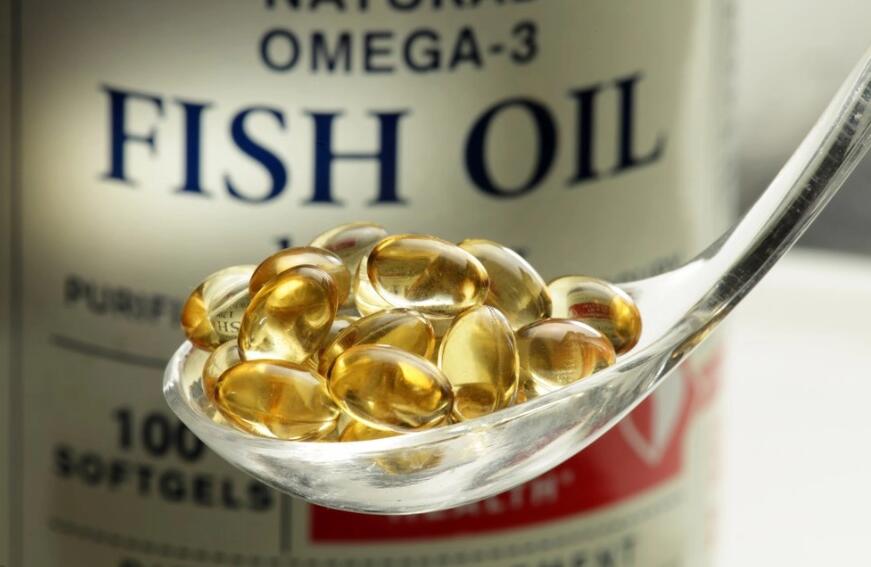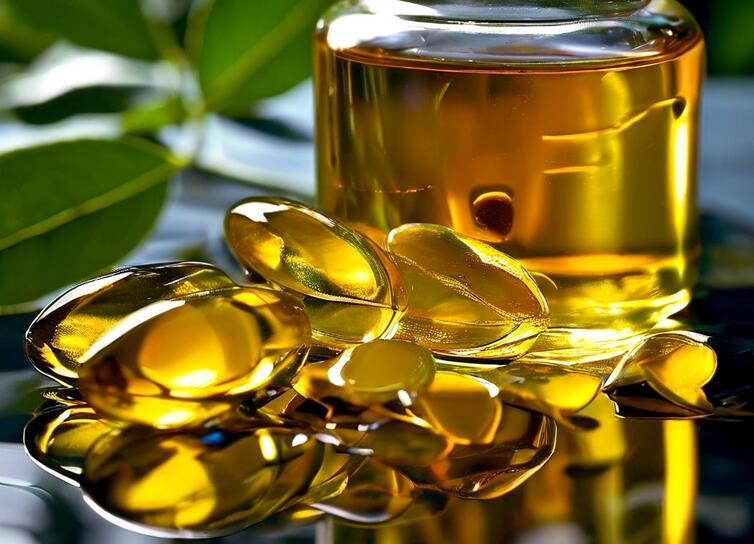Fish oil supplements have gained immense popularity in recent years due to their potential health benefits. This is particularly their high content of omega-3 fatty acids. These essential fatty acids, namely eicosapentaenoic acid (EPA) and docosahexaenoic acid (DHA), have been associated with various health advantages. One of the most common reasons people take fish oil supplements is to manage their cholesterol levels. However, many people wonder does fish oil helps with cholesterol. This article will delve into the science behind fish oil and its effects on cholesterol.

What is Cholesterol?
Before we explore the effects of fish oil on cholesterol, it is essential to understand what cholesterol is. Cholesterol is a waxy substance that is naturally produced by the liver and is also obtained through dietary sources, such as animal-based foods.
While cholesterol is often associated with negative health outcomes, it plays a vital role in the body. This includes the production of hormones, vitamin D, and bile acids, as well as maintaining the integrity of cell membranes.
There are two main types of cholesterol: low-density lipoprotein (LDL) and high-density lipoprotein (HDL). LDL cholesterol is often referred to as “bad” cholesterol. It can accumulate in the arteries, leading to the formation of plaque and increasing the risk of heart disease and stroke.
On the other hand, HDL cholesterol is known as “good” cholesterol. it can help remove excess cholesterol from the arteries and transport it back to the liver for elimination. In addition, Triglycerides are another type of fat in the blood that can contribute to the development of heart disease when levels are elevated.
Does Fish Oil Help with Cholesterol?
The relationship between fish oil and cholesterol is complex and has been the subject of numerous studies over the years. While some research suggests that fish oil may have beneficial effects on cholesterol levels, other studies have yielded conflicting results.
1. Effects on Triglycerides
One of the most well-established benefits of fish oil is its ability to lower triglyceride levels. Triglycerides are a type of fat found in the blood that can contribute to the development of heart disease when levels are elevated.
Several studies have consistently shown that omega-3 fatty acids, particularly EPA and DHA found in fish oil, can significantly reduce triglyceride levels.
A meta-analysis published in the American Journal of Clinical Nutrition found that fish oil supplementation resulted in a significant reduction in triglyceride levels, with an average decrease of 0.45 mmol/L (approximately 40 mg/dL). This effect was more pronounced in individuals with higher baseline triglyceride levels and those taking higher doses of fish oil.
2. Effects on LDL Cholesterol
The impact of fish oil on LDL cholesterol, or “bad” cholesterol, is more controversial. Some studies suggest that fish oil may slightly increase LDL levels, while others have found no significant effect or even a modest reduction in LDL cholesterol.
A review published in the journal Circulation noted that while DHA may increase LDL cholesterol levels, EPA does not appear to have this effect. The authors suggest that the increase in LDL cholesterol associated with DHA may be due to the conversion of VLDL (very low-density lipoprotein) particles to LDL particles in the liver.
However, it is important to note that the increase in LDL cholesterol observed in some studies is usually modest and may be offset by the beneficial effects of fish oil on other aspects of cardiovascular health. This includes such as reducing inflammation and improving endothelial function.
3. Effects on HDL Cholesterol
Fish oil has been shown to have a positive effect on HDL cholesterol, or “good” cholesterol. HDL cholesterol helps remove excess cholesterol from the arteries and transport it back to the liver for elimination.
Several studies have demonstrated that fish oil supplementation can lead to a modest increase in HDL cholesterol levels. A meta-analysis published in the journal PLOS ONE found that fish oil supplementation resulted in a significant increase in HDL cholesterol.
While the increase in HDL cholesterol associated with fish oil supplementation is relatively small, it may still contribute to the overall cardioprotective effects of omega-3 fatty acids.

Factors Influencing the Effects of Fish Oil on Cholesterol
The effects of fish oil on cholesterol levels can vary depending on several factors, including the dose of omega-3 fatty acids, the ratio of EPA to DHA, and an individual’s baseline cholesterol levels and overall health status.
1. Dose and Ratio of EPA to DHA
The dose and ratio of EPA to DHA in fish oil supplements can influence their effects on cholesterol levels. Studies have shown that higher doses of omega-3 fatty acids, typically ranging from 2 to 4 grams per day, are more effective in reducing triglyceride levels and increasing HDL cholesterol.
Additionally, the ratio of EPA to DHA may play a role in the impact of fish oil on cholesterol. Some research suggests that EPA may be more effective in reducing triglycerides and increasing HDL cholesterol. While DHA may be more likely to raise LDL cholesterol levels. However, more research is needed to fully understand the optimal ratio of EPA to DHA for managing cholesterol levels.
2. Individual Factors
An individual’s baseline cholesterol levels and overall health status can also influence the effects of fish oil on cholesterol. People with higher baseline triglyceride levels tend to experience greater reductions in triglycerides with fish oil supplementation.
Furthermore, individuals with certain health conditions, such as type 2 diabetes or metabolic syndrome, may respond differently to fish oil supplementation.
It is essential to consult with a healthcare professional before starting any supplement regimen. This is important especially if you have pre-existing health conditions or are taking medications that may interact with fish oil.
Prescription vs. Over-the-Counter Fish Oil Supplements
Fish oil supplements are available in both prescription and over-the-counter (OTC) forms. Prescription fish oils, such as Lovaza, Vascepa, and Epanova, contain higher doses of omega-3 fatty acids. They are regulated by the Food and Drug Administration (FDA) for quality and safety.
These prescription supplements are typically used to treat very high triglyceride levels (above 500 mg/dL). And they are often taken under the supervision of a healthcare provider.
OTC fish oil supplements, on the other hand, are not as closely regulated by the FDA and may contain lower doses of omega-3 fatty acids. The quality and purity of OTC supplements can vary widely, and some products may contain contaminants or have lower amounts of EPA and DHA than stated on the label.
When considering fish oil supplementation, it is essential to choose a high-quality product from a reputable manufacturer. Try to follow the recommended dosage instructions.

Potential Side Effects and Precautions
While fish oil supplements are generally considered safe for most people, they can cause some side effects, particularly at high doses. Common side effects of fish oil include:
- Fishy burps or taste in the mouth
- Digestive discomfort, such as nausea, diarrhea, or stomach pain
- Increased risk of bleeding, especially in people taking blood-thinning medications
It is important to note that the risk of bleeding associated with fish oil supplementation is more likely to occur at very high doses (above 3 grams per day) and in individuals taking blood-thinning medications.
If you are taking any medications or have a history of bleeding disorders, consult with your healthcare provider before starting fish oil supplementation.
Alternative Diets for Lowering Cholesterol
In addition to fish oil supplementation, certain dietary changes can also help lower cholesterol levels. Here are some alternative diets that are effective in managing cholesterol:
1. Mediterranean Diet
The Mediterranean diet is a heart-healthy eating plan. It emphasizes the consumption of fruits, vegetables, whole grains, legumes, nuts, seeds, and olive oil. It also includes moderate amounts of fish, poultry, and dairy, while limiting red meat and processed foods.
Studies have shown that following a Mediterranean diet can significantly reduce LDL cholesterol levels and increase HDL cholesterol levels. The high fiber content, healthy fats, and antioxidants in this diet contribute to its cholesterol-lowering effects.
2. DASH Diet
The Dietary Approaches to Stop Hypertension (DASH) diet is an eating plan designed to lower blood pressure. But it has also been shown to have cholesterol-lowering benefits. The DASH diet emphasizes fruits, vegetables, whole grains, lean proteins, and low-fat dairy while limiting saturated fats, sugar, and sodium.
Research has demonstrated that following the DASH diet can lead to reductions in total cholesterol, LDL cholesterol, and triglycerides.
3. Plant-Based Diets
Plant-based diets, such as vegetarian and vegan diets, have been associated with lower cholesterol levels. These diets are typically high in fiber, antioxidants, and plant sterols. This can help reduce cholesterol absorption in the gut.
Studies have shown that individuals following plant-based diets tend to have lower total cholesterol, and LDL cholesterol. However, it is important to ensure that plant-based diets are well-planned to avoid nutrient deficiencies.
4. Low-Carbohydrate Diets
Low-carbohydrate diets, such as the Atkins diet and the ketogenic diet, have gained popularity in recent years. While the primary focus of these diets is not cholesterol reduction, some studies have suggested that they may have cholesterol-lowering effects.
Low-carbohydrate diets typically emphasize the consumption of protein and healthy fats while limiting carbohydrate intake. This dietary pattern may lead to reductions in triglycerides and increases in HDL cholesterol.
Conclusion
So does fish oil help with cholesterol? The relationship between fish oil and cholesterol is complex, with research yielding mixed results. While fish oil has been consistently shown to lower triglyceride levels and modestly increase HDL cholesterol, its effects on LDL cholesterol are more controversial.
While fish oil supplements may offer some benefits for managing cholesterol levels, they should not be relied upon as the sole treatment for high cholesterol. A comprehensive approach that includes a healthy diet, regular exercise, and medication is often the most effective way to manage cholesterol levels.






